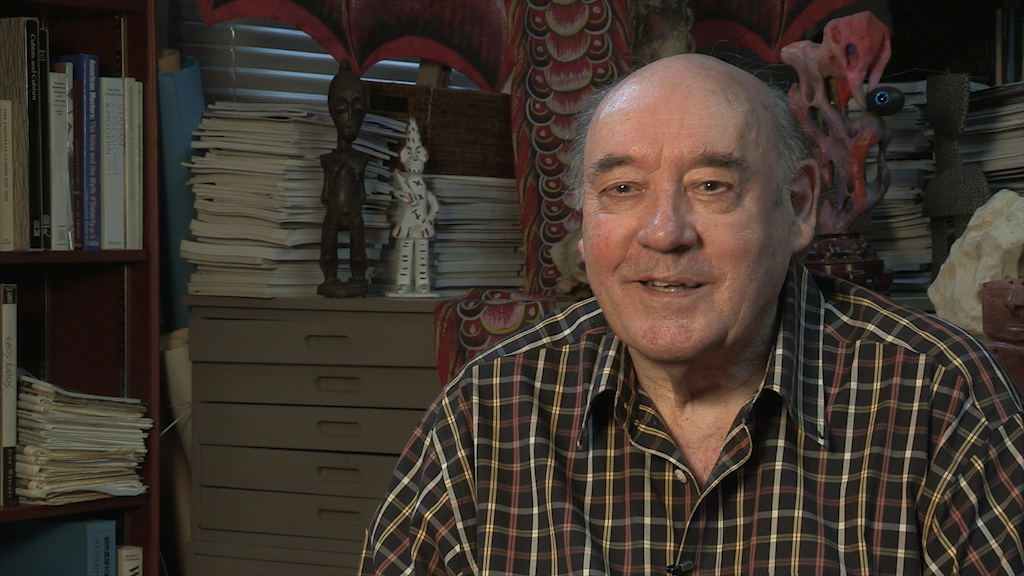So I must side-track for a moment into giant pandas. What had happened was this: we had a female giant panda at London Zoo called Chi Chi and in Russia they had a male called An An; they were the only two outside China. And I went along one day and I said, look, we should put these two pandas together and see if we can breed them – they're a rare species. And so the director of the zoo said, okay, hop off to Moscow and see if you can arrange it. Well, I hadn't anticipated that because the Cold War was on and it was not a very pleasant prospect going to Moscow on my own. And I remember getting into the aeroplane and flying there and thinking, why did I... why did I open my big mouth?
Anyway, there I was in Moscow, and Igor Petrovich Sosnovsky, the director of the Moscow Zoo and I, were having these discussions about whether we could mate these two giant pandas. But unfortunately for me, the Russians thought I was a spy because obviously they didn't... they didn't believe that anyone would go to Moscow to mate a giant panda. There hadn't been anybody going to Moscow for official sexual purposes since the bedding down of a latter day tsarina, and they couldn't accept this one for one minute. So they started to give me the full treatment. I was followed everywhere, my electric razor was dismantled and they couldn't get it together again – they thought... you know, looking for my equipment.
And then one day they said, 'Go for a walk!' And I said, but it's -35°C outside. I'd rather stay in. 'No, no, go for a walk, it'll be good for you. Go to GUM. GUM – the department store – you go and look at GUM'. So I went out in the freezing cold. I was followed by two large men with copies of Pravda under their arms. And I went to GUM and saw the queues for biro pens and other such features of Moscow in 1960... what was it? 1965 – or '66 – '65, '66. And as I was walking around GUM, somebody said, 'Psst!' And I thought, I didn't hear that, I couldn't. And I looked around and there's this spotty young man saying, 'Psst!' I thought, what is going... this is ridiculous. And he said, 'Listen very carefully'. So I said, 'What is it?' And he said, 'Are you interested in plans of secret factory?' I thought, this is like Carry On Spying, this isn't... And I said... so I thought... in my best English I said, 'Not today, thank you'. And he said, 'You don't understand! It is very important!' and he became very excited and tried desperately to go off with him to look at the plans of a secret factory.
And later that day I was being driven in the embassy car and the official from the embassy... 'So you had a good day?' And I said, well, I had this strange episode in GUM where they tried to get me involved in the plans of a secret factory. He said, 'Don't say anymore'. I said, well, why not? He said, 'The car's just been serviced'. Which... because every time the car went in for servicing, it got bugged and then they had to debug it, and they hadn't had time to debug it. So we stopped – it was just like some sort of Hollywood movie – and we got out in the freezing snow and we walked in Gorky Park together. And he said, 'Tell me all about it'.
So I told him about it. And he said, 'Well, thank goodness you didn't fall for it because if you had, they'd have taken you off to some place. If you'd, out of... out of a, you know sort of curiosity you'd gone off with him and he'd have showed you some stupid, useless plans and then the KGB would have broken in, you'd have been arrested and you'd be in Lubyanka and that's just what they wanted'. And I said, well, why would they want me? And he said, 'They need a swop'. So I said, a swop? And he said, 'Yes, yes, we've got one of theirs and they want to swop, so you were very lucky that they... you didn't...' I thought, this is ridiculous, I'm a zoologist – what's going on? You know, and I... Anyway, this... I'm making a joke about it now but actually at the time it was... it was stressful because there was a chance that they were going to get me into Lubyanka if they could.
And I... when I came back to England, something happened to me that hadn't happened to me before in my adult life. I fell seriously ill.






